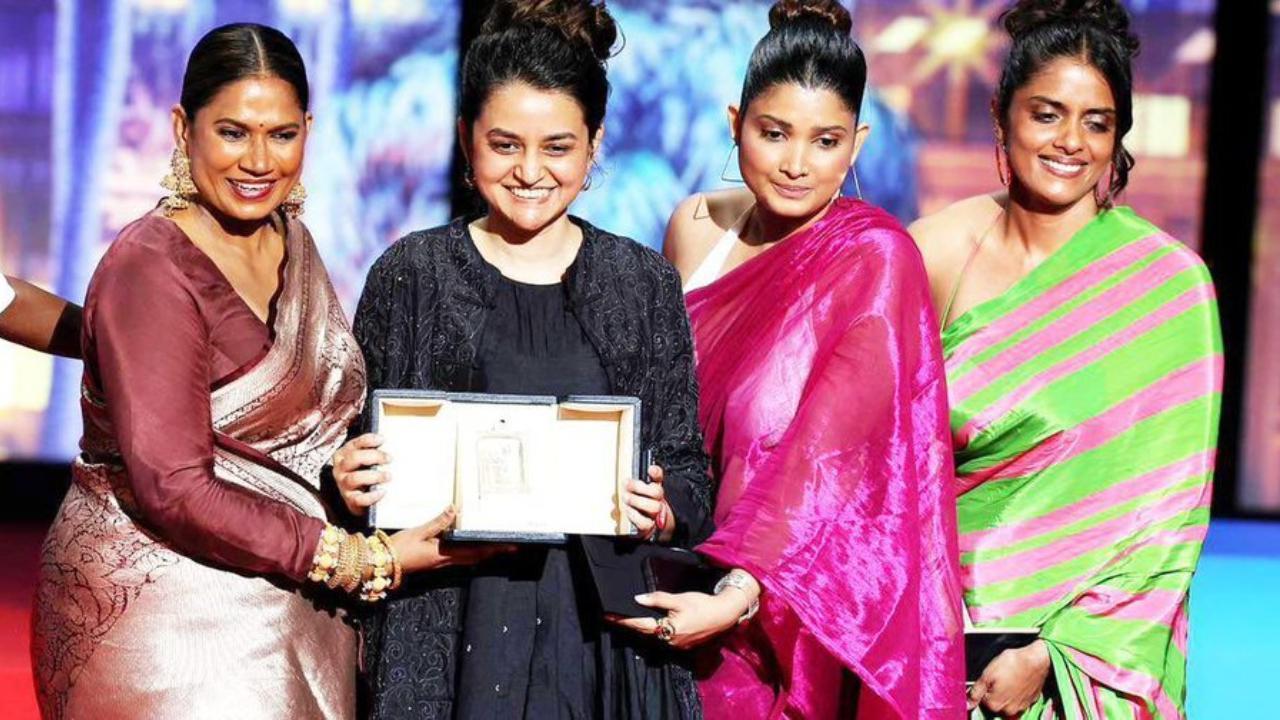
In a triumphant moment for Indian cinema, Payal Kapadia’s film “All That We Imagine As Light” clinched the prestigious Grand Prix on the final day of the Cannes 2024 Film Festival, marking a historic day for Indian filmmaking on an international platform. The film, headlined by Kani Kusruti, Divya Prabha, and Chayya Kadam, tells a poignant tale of female friendship set against the bustling backdrop of Mumbai. Remarkably, this cinematic masterpiece became the first Indian film in 30 years to be selected for the main competition at Cannes, akin to the much-coveted Palme d’Or.
Following the announcement, a deluge of congratulatory messages reverberated across the globe, with industry stalwarts, fans, and leaders alike acknowledging the team’s phenomenal achievement. Among these admirers was none other than India’s Prime Minister Narendra Modi, who took to Instagram to publicly commend Payal Kapadia and her team for making the nation immensely proud.
Addressing the nation and the world through X, PM Modi wrote, “India is proud of Payal Kapadia for her historic feat of winning the Grand Prix at the 77th Cannes Film Festival for her work ‘All We Imagine as Light.’ An alumnus of the Film and Television Institute of India (FTII), her remarkable talent continues to shine on the global stage, giving a glimpse of the rich creativity in India. This prestigious accolade not only honors her exceptional skills but also inspires a new generation of Indian filmmakers.”
This recognition holds particular significance as “All We Imagine As Light” is the first Indian movie in three decades to be considered for the Cannes Film Festival’s competition section, making Kapadia a notable contender for future aspirations, including the coveted Palme d’Or. The film received a memorable eight-minute standing ovation at its screening, one of the longest ovations in this edition of the festival, reflecting its powerful impact on audiences.
In her acceptance speech, which was met with thunderous applause, Payal Kapadia spoke eloquently about the core themes of her film. “This film is about the friendship between three different women, and oftentimes, women are pitted against each other. This is the way our society is designed, and it is really unfortunate.
. But for me, friendship is an important relationship. It can lead to greater solidarity, inclusivity, and empathy towards each other, which is why I feel these are the values we should always strive for,” she expressed passionately.
The film’s team, which includes the talents of Chhaya Kadam, Hridhu Haroon, Kani Kusruti, Divya Prabha, cinematographer Ranabir Das, editors Julien Graff and Zico Maitra, and sound designer Thomas Hakim, graced the red carpet in stunning attire, visibly overjoyed as they basked in their hard-earned victory. Their jubilant celebrations, dancing, and revelry won the hearts of many, symbolizing a moment of unified triumph and cultural pride.
It was indeed a monumental day for India as “All That We Imagine As Light” swiftly became a symbol of national pride, reinforcing the country’s emerging prowess in global cinema. Prime Minister Modi’s heartfelt message encapsulated the nation’s collective joy and aspirations that this victory heralds for future filmmakers. “An alumnus of FTII, her remarkable talent continues to shine on the global stage, giving a glimpse of the rich creativity in India,” he emphasized, marking a pivotal moment of recognition not just for Kapadia, but for the entire Indian film fraternity.
As international accolades continue to pour in, it is evident that Payal Kapadia’s “All That We Imagine As Light” resonates deeply, transcending cultural and societal boundaries. It’s a testament to the potent storytelling that emerges from India, reflecting the diverse, intricate narratives that hold universal appeal. The victory at Cannes not only elevates Indian cinema on the global stage but also inspires hope and ambition among budding filmmakers in India, galvanizing them to pursue their creative visions with renewed vigor and commitment.
In retrospection, the Grand Prix win by “All That We Imagine As Light” is more than just an award; it represents a pivotal shift and an emphatic declaration of Indian cinema’s growing influence and dynamic capabilities in the international film industry. As the celebrations continue, this moment will undoubtedly be etched in the annals of Indian cinematic history, inspiring generations to come.












